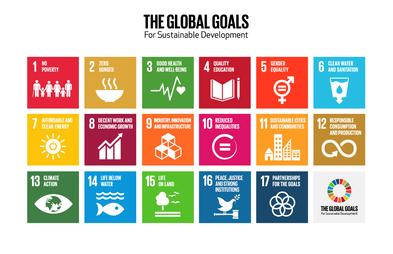OP-ED: Civil society advocacy for delivering on Universal Health Coverage, By Refiloe Mabejane
The road to UHC is different for every country, but civil society leadership is central to bringing the voices of the people—including girls and women—to policy development processes.

Universal Health Coverage (UHC), the idea that everyone everywhere should have access to good quality, affordable health services, is one of the key priorities of Sustainable Development Goal 3. Although countries have recognized that all human beings have the right to the highest standard of health, in many countries, good quality healthcare remains accessible to only a select few.
For many of the world’s poorest and most vulnerable, quality healthcare remains unaffordable and inaccessible. Civil Society Engagement Mechanism for UHC2030 (CSEM) is the civil society constituency of the International Health Partnership for UHC2030 hosted by Management Sciences for Health. The CSEM is a global coalition of over 350 civil society organizationswhich raises civil society voices to ensure that UHC policies are inclusive, equitable and pay systematic attention to the most marginalized and vulnerable populations – a focus to ensure that no one is left behind. The CSEM believes that for UHC to become a reality around the world, civil society leadership in UHC policy development and implementation at all levels is crucial.
In Kenya, for example, despite some well-documented challenges, civil society advocacy has begun to make significant advances toward ensuring the voices of citizens and communities shape national UHC policies and benefits packages. Under the leadership and coordination of Health NGOs Network (HENNET), civil society organizations conducted consultations with communities to gather input on the national UHC policy design, implementation and monitoring.
Through its representation on the national health benefits development task force, HENNET lobbied to ensure that essential health packages addressed the health needs and priorities identified by the communities, with a focus on the most marginalized and vulnerable populations. Because of their advocacy, reproductive, maternal and newborn health services were included in the essential services package. In 2018, Kenya launched the Afya Care program, a pilot UHC program providing free health care services, in four counties. Working alongside decision-makers in planning for the countrywide rollout of the program, Kenya civil society remains committed to advocating for UHC that leaves no one behind.
The road to UHC is different for every country, but civil society leadership is central to bringing the voices of the people—including girls and women—to policy development processes. Empowering people to claim and monitor implementation of their right to health is the only way to ensure that no one is left behind. The CSEM and our civil society members are calling on governments to create mechanisms to promote community participation in health governance to ensure transparent decision-making and effective monitoring and evaluation.
We also urge governments to develop, in partnership with civil society, accountability frameworks to monitor country progress toward UHC with a particular focus on vulnerable and marginalized populations. When developing or reviewing health policies and budgets, national leaders should always work with civil society to address the compounding effects of poverty; gender inequalities; and discrimination based on ethnicity, disability, sexual orientation and gender identity.
The ripple effects of being able to deliver UHC programs at scale – that truly achieve health for all – are potentially enormous. Civil society’s engagement in advocating for UHC can contribute to improving the livelihood of those living in poverty due to high health care costs and to a country’s overall health outcomes. As the global community focuses on universal health coverage this year on World Health Day and at the first-ever United Nations High-Level Meeting on Universal Coverage, join us and add your voice to calling for civil society engagement and inclusion of the voices of all people. Raising our voices will help shape UHC at the global, country and community level so that we can truly deliver Health for All.
Refiloe Mabejane is of the Civil Society Engagement Mechanism for UHC2030 secretariat; the article originally appeared on the website of Deliver for Good ; the views expressed in it are those of the author alone and do not necessarily reflect the editorial policy of African Newspage.












